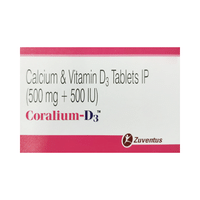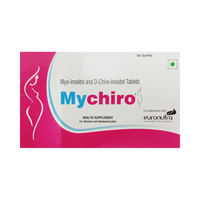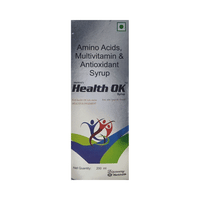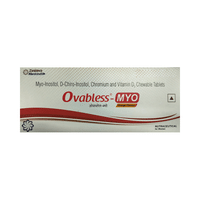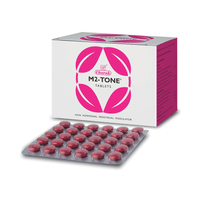Rs.115for 1 strip(s) (10 tablets each)
food interaction for Dgm
alcohol interaction for Dgm
pregnancy interaction for Dgm
lactation interaction for Dgm
food
alcohol
pregnancy
lactation
Dgm 80 mg/500 mg Tablet is to be taken with food.
This medicine may cause stomach upset if taken empty stomach.
None
This medicine may cause stomach upset if taken empty stomach.
None
CAUTION
It is unsafe to consume alcohol with Dgm 80 mg/500 mg Tablet.
UNSAFE
Dgm 80 mg/500 mg Tablet is unsafe to use during pregnancy as there is definite evidence of risk to the developing baby. However, the doctor may rarely prescribe it in some life-threatening situations if the benefits are more than the potential risks. Please consult your doctor.
CONSULT YOUR DOCTOR
Dgm 80 mg/500 mg Tablet is probably unsafe to use during breastfeeding. Limited human data suggests that the drug may pass into the breastmilk and harm the baby.
CONSULT YOUR DOCTOR
SALT INFORMATION FOR Dgm
Gliclazide(80mg)
Uses
Gliclazide is used in the treatment of type 2 diabetes mellitus. It is used along with diet and exercise to improve blood sugar control in adults with type 2 diabetes.
How it works
is an antidiabetic medication. It works by increasing the amount of insulin released by the pancreas in order to lower the blood sugar levels.
Common side effects
Hypoglycemia (low blood glucose level), Dizziness, Headache, Nausea, Abdominal pain, Diarrhea, Rash, Vomiting, Weight gain, Gastrointestinal disturbance, Small blood vessel inflammation, Hypersensitivity, Hypotension (low blood pressure), Shock, Abdominal distension, Abdominal discomfort, Abnormal liver function, Hepatitis (viral infection of liver), Liver failure, Itching, Red spots or bumps, Erythema (skin redness), Maculopapular rash, Bullous dermatoses (skin disease characterized by presence of blisters)
Metformin(500mg)
Uses
Metformin is used in the treatment of type 2 diabetes mellitus and polycystic ovarian syndrome (PCOS).
How it works
Metformin is an anti-diabetic medication (biguanide). It works by lowering glucose production in the liver, delaying the absorption of sugar (glucose) from the intestines, and increasing the body's sensitivity to insulin.
Common side effects
Diarrhea, Headache, Vomiting, Nausea, Flatulence, Indigestion, Vitamin B12 deficiency, Abdominal discomfort, Hepatitis (viral infection of liver), Drug eruptions, Lactic acidosis, Hypoglycemia (low blood glucose level)
SUBSTITUTES FOR Dgm
466 Substitutes
466 Substitutes
Sorted By
 Rs. 204.23pay 14% more per Tablet
Rs. 204.23pay 14% more per Tablet Rs. 110.86save 6% more per Tablet
Rs. 110.86save 6% more per Tablet Rs. 168.20save 6% more per Tablet
Rs. 168.20save 6% more per Tablet Rs. 92.70save 23% more per Tablet
Rs. 92.70save 23% more per Tablet Rs. 231.50pay 30% more per Tablet
Rs. 231.50pay 30% more per Tablet
Expert advice FOR Dgm
- Take it shortly before or with the first main meal of the day (usually breakfast). Avoid skipping meals.
- Be careful while driving or operating machinery until you know how Gliclazide affects you.
- It can cause hypoglycemia (low blood sugar level) when used with other antidiabetic medicines, alcohol or if you delay or miss a meal.
- Always carry some sugary food or fruit juice with you in case you experience hypoglycemic symptoms such as cold sweats, cool pale skin, tremor and anxiety.
- Your doctor may check your liver function regularly. Inform your doctor if you develop symptoms, such as abdominal pain, loss of appetite, or yellowing of the eyes or skin (jaundice).
- Gliclazide helps decrease high blood sugar level and avoid long-term complications of diabetes.
- Take it shortly before or with the first main meal of the day (usually breakfast). Avoid skipping meals.
- Exercise regularly, eat a healthy diet and take your other diabetes medicines (if prescribed) alongside.
- It can cause hypoglycemia (low blood sugar level) when used with other antidiabetic medicines, alcohol or if you delay or miss a meal.
- Always carry some sugary food or fruit juice with you in case you experience hypoglycemic symptoms such as cold sweats, cool pale skin, tremor and anxiety.
- Monitor your blood sugar level regularly while you are taking this medicine.
- Be careful while driving or operating machinery until you know how Gliclazide affects you.
- Your doctor may check your liver function regularly. Inform your doctor if you develop symptoms, such as abdominal pain, loss of appetite, or yellowing of the eyes or skin (jaundice).
Frequently asked questions FOR Dgm
Gliclazide
Q. What is the best time to take Gliclazide?
Take Gliclazide before meals or exactly as instructed by your doctor. There is evidence stating that Gliclazide works best at controlling post meal high blood sugar levels when taken 30 minutes before breakfast. So, if you are supposed to take it once daily, take it in the morning before breakfast with a glass of water.
Q. Is Gliclazide the same as metformin?
No, Gliclazide is not the same as metformin. Although both these oral medicines are used in the treatment of type 2 diabetes, the way they work to reduce the sugar levels are different. While Gliclazide acts by increasing the secretion of insulin by the pancreas, metformin acts by improving the functioning and effectiveness of the insulin already available in the body.
Q. Can you take metformin and Gliclazide at the same time?
Yes, Gliclazide and metformin can be taken at the same time but only if prescribed by the doctor. Your doctor may have prescribed taking the two together to control your uncontrolled sugar levels. However, taking the two together may cause low blood sugar which may also occur if you delay or miss a meal, exercise more than usual or take it with insulin. Follow the instructions given by your doctor strictly to avoid such complications.
Metformin
Q. What does Metformin do exactly?
People with type 2 diabetes are not able to make enough insulin or respond normally to the insulin made by their bodies. When this happens, the concentration of sugar/glucose increases in the blood. Metformin acts in several ways to reduce the increased levels of sugar in blood. Metformin decreases glucose production from the liver and decreases absorption of glucose from the intestine after taking food while improving the sensitivity of the body organs and muscles towards insulin. This helps improve the uptake of glucose from the blood. It also helps your body to respond better to the insulin it makes naturally.
Q. Does Metformin cause weight loss?
Yes, Metformin has been shown to cause weight loss in people who are overweight or obese. It may also cause a modest loss in weight in those overweight and obese individuals who are at risk for diabetes. In addition, patients who are sensitive or resistant to insulin may also show weight loss. But, do not start taking this medicine for weight loss on your own. Consult your doctor for the same.
Q. What are the benefits of taking Metformin?
Metformin is one of the first medicines that is given to patients with high blood sugar levels. It helps control blood sugar levels. It promotes the body’s response to the insulin made by the pancreas, decreases the amount of sugar made by the liver and decreases the amount of sugar absorbed by the intestines. Unlike other oral antidiabetic medicines, Metformin when taken alone, rarely causes low blood sugar as it prevents the pancreas from secreting more insulin. In addition to being a great medicine to lower blood sugar levels, it also helps in controlling weight gain.
















